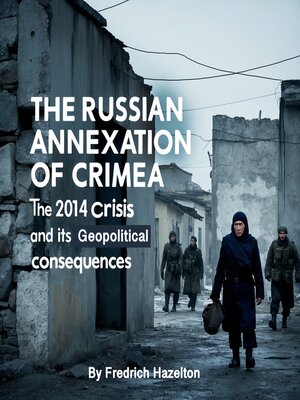The Russian Annexation of Crimea
audiobook (Unabridged) ∣ The 2014 Crisis and Its Geopolitical Consequences
By Fredrich Hazelton

Sign up to save your library
With an OverDrive account, you can save your favorite libraries for at-a-glance information about availability. Find out more about OverDrive accounts.
Find this title in Libby, the library reading app by OverDrive.



Search for a digital library with this title
Title found at these libraries:
| Library Name | Distance |
|---|---|
| Loading... |
The annexation of Crimea by Russia in 2014 marked a pivotal moment in global geopolitics, triggering widespread international condemnation and transforming the political landscape of Eastern Europe. Situated on the northern coast of the Black Sea, Crimea had long held strategic importance for Russia, both militarily and culturally. The region's historical connection to Russia dates back centuries, and its annexation was perceived by many as an assertion of Russian power and influence in the post-Soviet space.
The crisis unfolded against the backdrop of political upheaval in Ukraine. In November 2013, protests erupted in Kyiv after then-President Viktor Yanukovych's decision to abandon an association agreement with the European Union in favor of closer ties with Russia. The protests, known as Euromaidan, led to Yanukovych's ousting and sparked a chain of events that would destabilize Ukraine. As Ukraine's new government navigated this turbulent period, Russia saw an opportunity to regain control over Crimea, a region with a substantial Russian-speaking population and significant military value, including the Black Sea Fleet stationed in Sevastopol.
Russia's annexation of Crimea was carried out through a combination of covert military action and political maneuvering. Russian troops, initially unmarked, swiftly took control of key government buildings and strategic locations across Crimea. A disputed referendum held in March 2014, where a reported 97% of voters favored joining Russia, was widely criticized for its lack of legitimacy and fairness. The annexation was swiftly recognized by Russia, despite the overwhelming condemnation from the international community.







